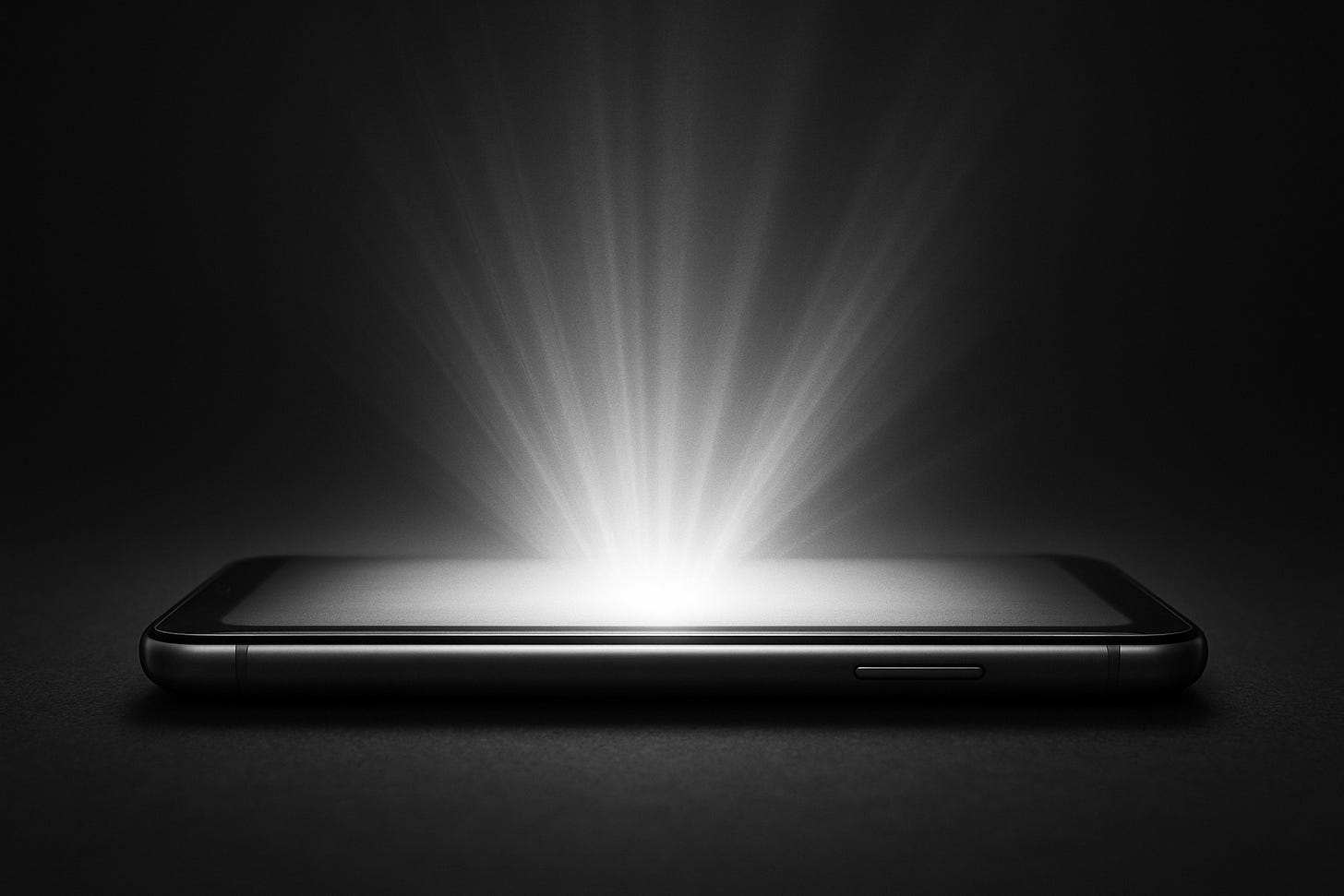Welcome back.
This week we’re touching the third rail of career comportment - how to express oneself on social media while exhibiting a professionally acceptable, even appealing, profile. While the goals aren’t exclusive, there nevertheless remains a tension in the digital realm between the personal and the professional, the private and the public.
If you’re interested in a deep dive into this tension, consider the just released Strangers and Intimates: The Rise and Fall of Private Life by Tiffany Jenkins.
To note: We are addressing the vast majority of professionals whose careers are not directly tied to their personal activity on social media. If you are a full-time influencer, we wish you growth in your number of followers.
For the rest of us, what does your social media presence tell current and future employers, for better or worse, about you? Potentially - honestly - a lot.
That Digital Life
Social media is many things - one of the more fertile spaces where people feel they can truly and duly express themselves, a connector in ways and at a scale impossible before this century, and an immense source of information, education and empowerment. It has also degraded society’s social fabric, caused manifestations of anxiety and stress that previously did not exist, allowed our worst impulses to emerge from the behavioral shadows, and undermined representative government and the common acceptance of fact.
So, both good and bad, you know?
But we’re not going to debate the relative merits and demerits of social media; we are all aware of the ramifications by now. Rather, let’s consider how one’s presence on the platforms impacts - even limits - one’s job search, even career.
Nothing Lasts Forever, Except Your Posts
So, what are the stakes, and what’s the impact?
In our digitally-anchored world, it’s important to remember that, in spite of the ease with which we can post thoughts, ideas and opinions, and in spite of the general cultural acceptance, even encouragement, of such casual (over)sharing, nothing on social media actually disappears. We often lose sight of the fact that every piece of content is forever, even when our accounts are private and the content, such as an Instagram story, vanishes. It’s easy to forget that social media doesn’t.
In the digital world, quick and easy posts, which feel like the equivalent of a comment we’d make to a close friend over coffee, evaporating right there at the table, could be potentially memorialized for all time - and therefore seen some time in the future - no matter how small and even when private.
It’s important to be mindful of your posts’ permanence and audience.
Not the people with whom you know you are sharing. But everyone else who might somehow, some way, see what you say. What might not mean much to you today, especially within the confines of a private group, might mean the world to you five years hence in another context. Because it might make the difference between receiving an offer for your dream job and a polite rejection.
Background checks on potential hires often include a scrub of the last 7-10 years of one’s digital/social media history. Ever if you’re a different person now than you were then, it doesn’t matter. You own your content and commentary just as if you posted yesterday.
The truth is: you won’t get to explain yourself, you just won’t get the job.
Companies are critical, and their interest lies in protecting their own reputation, in the continuity and clarity of their culture and brand, not in parsing the circumstances and context for your old posts.
We can’t control how people respond, even if the response is an unfair characterization given your intended meaning. Just as it’s your prerogative to express what you wish online, it’s a company’s prerogative to judge it on their terms.
Thus, we end up guilty until proven innocent in the court of corporate opinion.
Unintended Exhibition
As mentioned, private means private until it’s public.
A cautionary tale: There was a senior-level designer who worked for a legendary interior design studio in Los Angeles. Toward the end of a project, during the installation, the senior employee took photos of the property, which he shared privately with a group of friends on Instagram. He was proud of his contributions and the result. The post was not public. He also posted - privately - a photo in front of the private aircraft the team took to the installation, as the window for the work was extremely tight.
You can guess what happened next. Though private, the contents made their way to the firm’s client, who had not yet seen their newly built and decorated house. The client then shared with the principal of the firm, who was understandably embarrassed and upset. Beyond the fact that they weren’t the senior designer’s to share, the images ruined the reveal.
The plane photo was plain tacky. Current trends notwithstanding, it’s never a good look to flaunt extravagance, not least of which because, in this case, the client might rightly ask, for what exactly were their fees paying?
The designer unfortunately but rightly lost their job.
Two Yous?
For some, creating public and private accounts, and adhering to that separation, can be helpful. However, as outlined, making one’s account private does not alone guarantee your posts won’t be viewed by those beyond your group in the future, and not in a nefarious or invasive way, but simply because the digital-social world is tentacled and hyper-connected.
Even within your private digital space, it’s best to assume that a future employer might some day read or view the content you post today.
There still exists a real distinction between public and private spheres. It’s not to suggest you be a different person, to change who you are. It only concerns what aspects of your self you choose to share where.
The world wouldn’t function if we were our miraculous yet messy selves in every venue and setting anyway. Extend that same perspective to social media.
Be sincere but not confessional.
The limitations might be frustrating. But, as with every aspect of life, we need civilizing guardrails. It’s what makes the world go round. Accepting them and learning to operate creatively and fully within them is your best bet to participate online without detonating a future professional opportunity.
Onward.
BC + CA + EH






